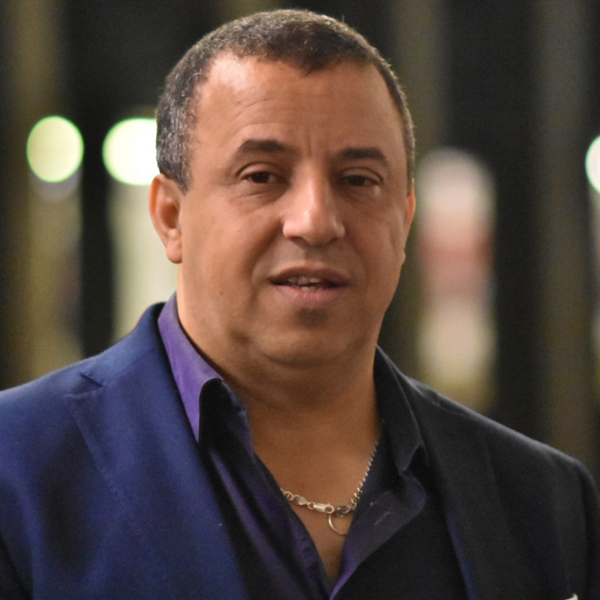Razq Hakem
PhD, University of Aix-Marseille II

At a Glance
- Identification of novel cancer genetic risk factors and diagnosis markers.
- Dissect cancer cell signaling mechanisms.
- Multidisciplinary approaches to cancer research.
- Integration of multiomics, CRISPR-Cas9 screening, biochemistry, and molecular biology.
- Focus on discovering novel therapeutic targets for patients with aggressive cancers.
Short Bio
Dr. Hakem is a Professor at the Department of Medical Biophysics at the University of Toronto. He is also a Senior Scientist at the Princess Margaret Cancer Centre/UHN. He received his Ph.D from the University of Aix-Marseille II, France. He completed his post-doctoral training at the Howard Hughes Medical Institute / Washington University Medical School, Saint Louis in the US and the Amgen Research Institute in Toronto. Dr. Hakem started his faculty position in 1998 and has focused his research program on cancer mechanisms and the discovery of better cancer therapeutic strategies.
Dr. Hakem’s laboratory has identified several novel tumor suppressor genes and extensively investigated their functions and how their loss or mutations promote cancer development. Dr. Hakem is a world-class expert in cancer genetics, cell signaling, and molecular oncology. His work has been published in leading journals including Cell, Science, Nature Genetics, Nature Communications, the Journal of Clinical Investigation and the Nucleic Acids Research journals.
Dr. Hakem is well funded and is committed to providing excellent supervision and training to his students to allow them to be the next generation of Scientists. Several former trainees in his laboratory are currently faculty members in top universities or have influential positions in the private sector.
Dr. Hakem is interested in supervising students who are highly self-motivated and committed to cancer research to help patients.
Research Synopsis
The focus of our research is to characterize novel genetic risk factors and unravel mechanisms that regulate cell signaling pathways important for human cancer. A major effort of our research program is to identify novel strategies that could improve cancer therapy.
Currently ongoing projects investigate:
1- BRCA1 and BRCA2 and their role in breast and ovarian cancer
2- Signaling pathways including WNT and the Hippo pathways
3- CRISPR screening to identify synthetic lethal targets to kill breast, ovarian, and other cancer types
Using multidisciplinary approaches and collaborating with scientists, clinicians, pathologists and bioinformaticians, we focus on our long-term goal to contribute to better diagnosis and therapy for cancer patients.
Recent Publications
-
Shokrollahi M, Stanic M, Hundal A…. Hakem R* and Mekhail K*. DNA double-strand break-capturing nuclear envelope tubules drive DNA repair. Nature Structural & Molecular Biology (2024). doi.org/10.1038/s41594-024-01286-7
- Krishnan, R, ..…. and Hakem. RNF8 ubiquitylation of XRN2 facilitates R-loop resolution and restrains genomic instability in BRCA1 mutant cells. Nucleic Acids Research, (2023). doi.org/10.1093/nar/gkad733
- Parasvi, P†, Algouneh, A†, Krishnan, R†,.., and Hakem, R. Excessive transcription-replication conflicts are a vulnerability of BRCA1-mutant cancers. Nucleic Acids Research. (2023). doi.org/10.1093/nar/gkad172
- Patel, P., Abraham, K.J., Guturi, K.N., Khan, Z., Ho, B., Mateo, F.,.., and Hakem, R. RNF168 loss confers synthetic lethality in BRCA-deficient tumors through impairment of R-loop resolution. Journal of Clinical Investigation. (2021). doi.org/10.1172/JCI140105
- Li L, Guturi KKN, Gautreau B, Patel PS,.., and Hakem R.. Ubiquitin ligase RNF8 suppresses Notch signaling to regulate mammary development and tumorigenesis. Journal of Clinical Investigation. (2018). doi.org/10.1172/JCI120401
- Guturi KK, Bohgaki M, Bohgaki T,.., and Hakem R. RNF168 and USP10 regulate topoisomerase IIa function via opposing effects on its ubiquitylation. Nature Communications. (2016). doi.org/10.1038/ncomms12638.
- McPherson, J. P., Lemmers, B.,.., and Hakem, R. Involvement of mammalian Mus81 in genome integrity and tumor suppression. Science. (2004). DOI: 10.1126/science.1094557
- Hakem, R., Hakem, A., de la Pompa, et al. Differential requirement for caspase 9 in apoptotic pathways in vivo. Cell, 94: 339-352. (1998). doi: 10.1016/s0092-8674(00)81477-4
- Hakem, R., de la Pompa, J.L., et al. The tumor suppressor Brca1 is required for embryonic cellular proliferation in the mouse. Cell, 85: 1009-1023. (1996), doi: 10.1016/s0092-8674(00)81302-1
Honours and Awards
- Dr. Hakem’s research program is supported by the Lau Chair in Breast Cancer Research, a joint project between the University of Toronto and the Princess Margaret Hospital
- Dr. Hakem is the chait of the Cancer Biology and Imaging program at the Princess Margaret Cancer Centre.
- Dr. Hakem is also a recipient of several grants and the prestigious Foundation Scheme grant/award from the Canadian Institutes for Health Research
